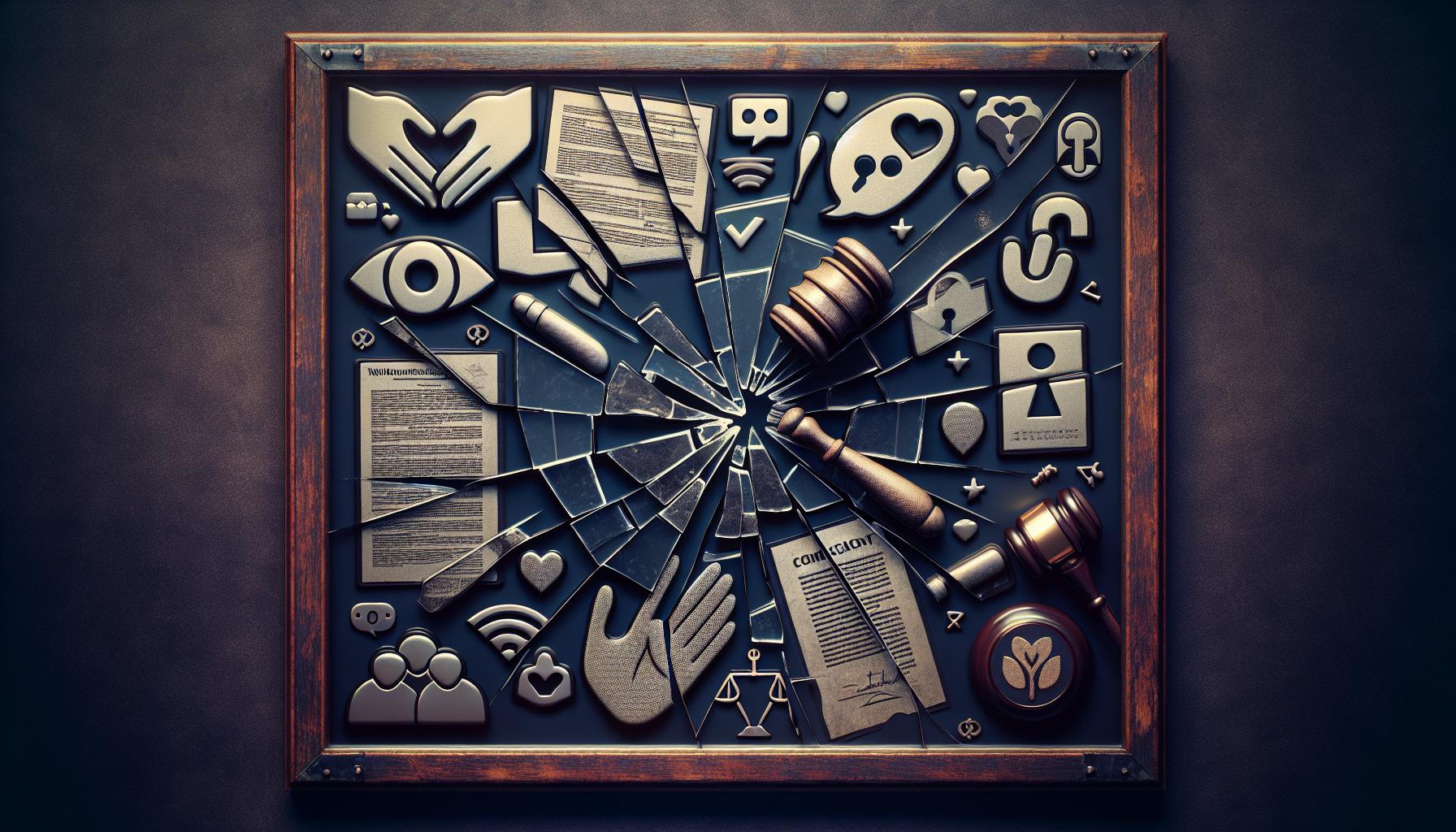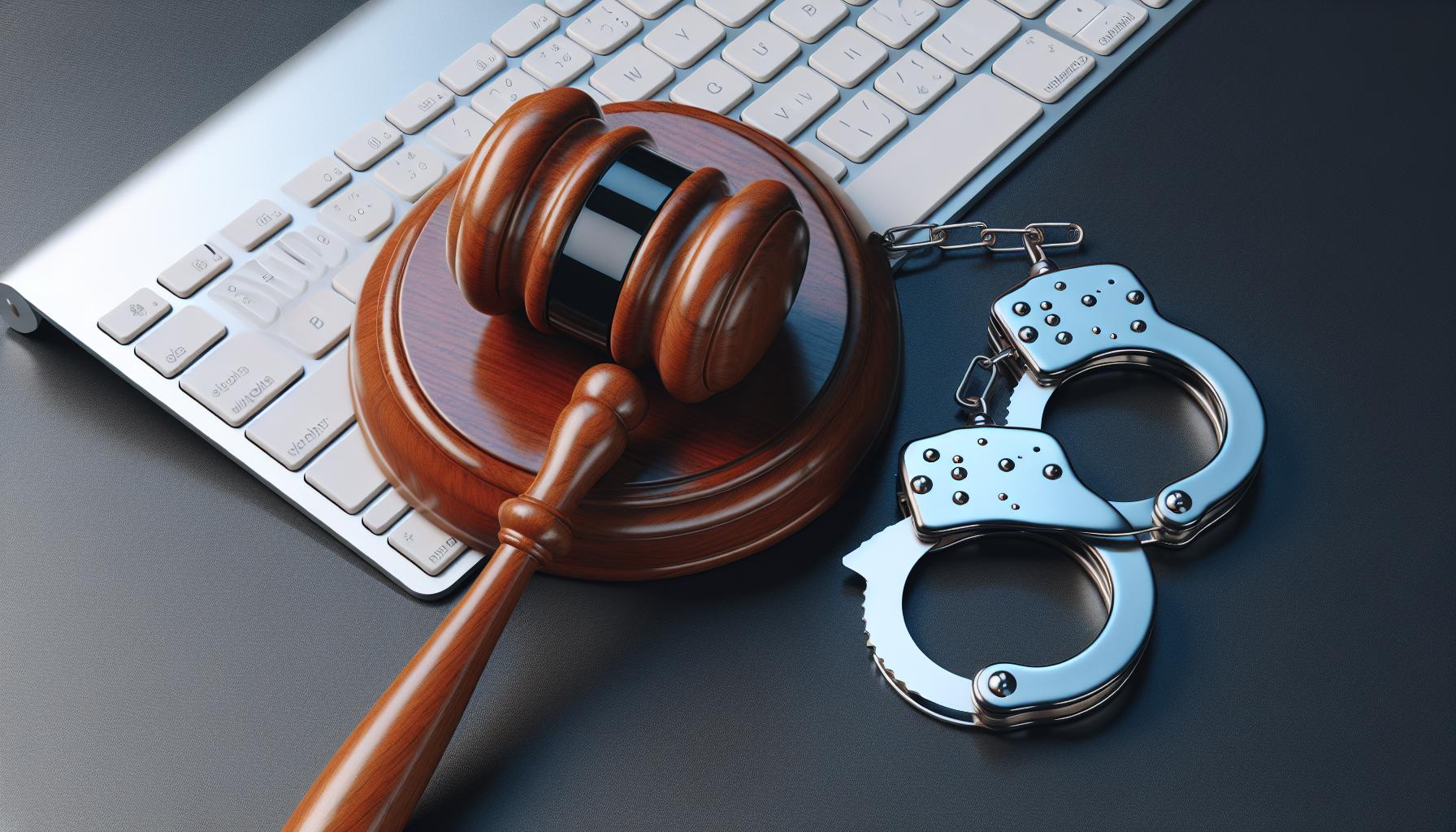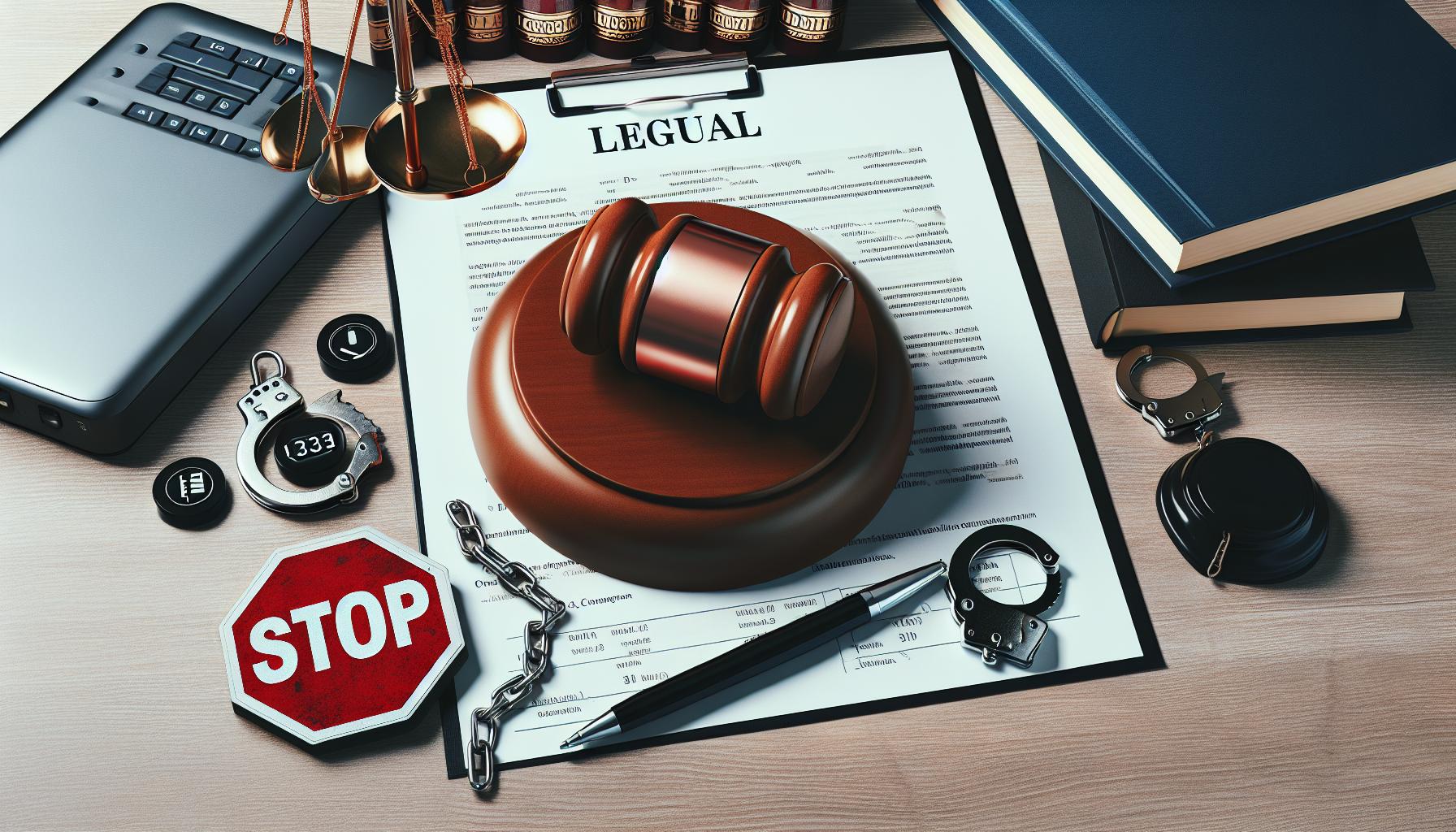In the vast landscape of adult entertainment online, few names are as recognizable as Pornhub. But there’s a darker side to this industry giant that’s been making headlines: the issue of non-consensual content, often dubbed “pornhubforced.” I’ve been digging deep into this troubling phenomenon, and it’s time to shine a light on the realities behind the screen.
As a seasoned blogger, I’ve seen my fair share of industry controversies, but the allegations of forced content on platforms like Pornhub are particularly alarming. It’s not just about the legal implications; it’s about the human impact. Let’s unpack the layers of this complex issue together.
The conversation around “pornhubforced” isn’t just a fleeting topic—it’s a critical discussion about consent, ethics, and the responsibility of content platforms. Stay tuned as I delve into what “pornhubforced” really means and why it’s a concern that demands our attention.
Understanding “Pornhubforced”
When discussing “pornhubforced”, it’s vital to explore the term’s nuances. This unsettling phenomenon encompasses instances where content is uploaded without the consent of all parties involved. These videos can range from leaked personal encounters to instances of sexual assault and coercion. It’s not only a blatant disregard for consent but also a violation of human rights, raising numerous ethical and legal questions.
Consent is the linchpin of ethical adult entertainment. It’s supposed to ensure that all participants are willing and understand the implications of their involvement. The disturbing aspect of “pornhubforced” content is that it does not adhere to this fundamental principle. As a responsible internet user, I’m concerned about how frequently such content appears and what it says about the darker undercurrents within the adult entertainment industry.
One major issue with non-consensual content is the permanent damage it can inflict on victims’ lives. When their most intimate moments are broadcast without permission, it can lead to severe psychological distress, social ostracization, and professional consequences. Resources like the Cyber Civil Rights Initiative offer support to victims and fight against non-consensual pornography, emphasizing the gravity of the situation.
Moreover, the proliferation of “pornhubforced” videos signifies a problematic loop in content moderation on platforms like Pornhub. While Pornhub has pledged to reinforce its content policies, it remains a challenging task to police millions of videos, with new uploads every day. The site’s inadequate response raises questions about the effectiveness of self-regulation in the adult entertainment sector and highlights the need for systemic changes to protect individuals from exploitation.
As a trusted voice in this conversation, I recognize the importance of staying informed and advocating for the rights and protections that should be afforded to everyone, regardless of circumstance. It’s about holding platforms accountable and ensuring that the adult industry reflects the values and laws that govern society at large.
The Dark Side of Pornhub
When discussing adult content platforms, it’s crucial to address their dark facets, particularly the prevalence of videos tagged “pornhubforced”. It’s no secret that these platforms, including giants like Pornhub, have been marred by allegations of hosting non-consensual content. Videos potentially depicting exploitation and abuse raise serious ethical and legal concerns.
Content moderation is ostensibly in place to curb illegal and non-consensual media on these sites. However, the intricate challenges associated with identifying and removing such content are staggering. Given the vast quantity of videos uploaded daily, effectively policing the platform becomes a herculean task. Reportedly, Pornhub employs cutting-edge technology and a dedicated team to vet uploads, yet problematic content still slips through.
The term “pornhubforced” is itself a chilling indicator of the darker aspects of the adult entertainment industry. This isn’t just about a lack of consent; it’s about the perpetuation of violence and coercion. Potential victims often find it nearly impossible to have their videos removed once uploaded, causing lasting trauma and reputational damage.
Moreover, it’s not only individuals who suffer. There’s a growing recognition of the collective harm these practices inflict on society. They skew perceptions of normal sexual behavior, foster exploitation, and normalize violence against women. Concerned organizations and activists have pointed to the need for industry-wide reform, and in some cases, legal intervention is promoted as necessary for meaningful change.
Legislation such as the Earn It Act aims to hold these platforms accountable by threatening to strip away protections under Section 230 of the Communications Decency Act if they fail to prevent the spread of illegal content. Still, the debate continues on how to balance the freedom of expression with the imperative to protect individuals from harm.
As the public becomes increasingly aware of these issues, the pressure on adult content platforms to enact real change intensifies. They are compelled to confront the harsh reality: accountability and transparency are no longer optional in this industry. They’re imperative for ensuring adult entertainment is both ethical and consensual.
Allegations and Controversies
In dealing with the topic of “pornhubforced,” it’s impossible to overlook the myriad of allegations and controversies that have surrounded the site in recent years. Pornhub has faced intense scrutiny over its content moderation policies, with accusations that the platform has allowed videos containing non-consensual acts to persist. These allegations prompt discussions around the responsibility of such platforms in enforcing more stringent verification processes to safeguard participants’ rights.
The eruption of controversy has not gone unnoticed; high-profile lawsuits and public outcries have sparked a debate on the moral and legal obligations of adult content platforms. Reports of content featuring minors and non-consensual sexual encounters have emerged, causing widespread outrage and calls for tougher regulation. This attention has led to a significant policy overhaul by Pornhub, which now includes more rigorous verification systems to attempt to prevent unauthorized content from being distributed. The New York Times reported extensively on the impact of these controversies, highlighting the individual and collective harm caused.
Alongside allegations of harmful content, the aforementioned platform has faced questions over its content monetization strategies. Critics argue that profit motives may sometimes overshadow ethical concerns, leading to a delayed response to serious issues. With the pressure mounting, there’s been a notable shift in the dialogue around content regulation on adult sites. Particularly, how can these sites balance the fine line between embracing freedom of expression and protecting individuals from exploitation?
Amidst these controversies, there’s also an ongoing discussion regarding the mental health implications for both viewers and performers, a topic covered in depth by medical and psychological professionals on platforms like Psychology Today. As public knowledge grows, so does the understanding that the ramifications of such controversies extend beyond the screen, influencing real-world perspectives on sexuality and consent.
It’s apparent that the debates surrounding Pornhub and its “pornhubforced” content are multifaceted. From legal complexities to ethical conundrums, the industry’s practices are continually being examined under the microscope of public opinion. The response from both the platform itself and the broader community will likely shape the future of adult content regulation and its place within society.
Legal Implications and Human Impact
When exploring the legal implications of “pornhubforced” content, there’s a chilling reality to face. The non-consensual distribution of intimate imagery is a grievous offense, falling under various state and federal laws in the US. Recent years have seen a significant push towards criminalizing such acts, often referred to as “revenge pornography.” Victims can seek justice under these laws, with potential paths including civil lawsuits or criminal charges against perpetrators.
Websites hosting non-consensual content also grapple with legal challenges. There’s an ever-growing call for stringent enforcement of laws like Section 230 of the Communications Decency Act, which doesn’t hold websites liable for user-posted content but is currently under heavy scrutiny. Myriad voices argue that companies like Pornhub should bear greater responsibility, especially when “pornhubforced” content is in question.
On the human side of the equation lies an undeniable impact. I’ve read heart-wrenching accounts from victims who’ve stumbled upon their own images on these sites. They often report feeling a sense of violation that lingers far beyond the initial event. The psychological trauma inflicted by such incidents can’t be overstated; it’s a lasting wound that can precipitate depression, anxiety, and trust issues. The National Sexual Violence Resource Center offers a glimpse into the ripples of trauma caused by non-consensual pornography.
Coupled with personal distress, there are societal implications to consider. The presence of “pornhubforced” content perpetuates a culture that normalizes sexual coercion and violence. It undermines efforts to promote consent and respect in sexual encounters, which are critical values for a healthy society.
For those seeking assistance or looking to support those affected, organizations like Cyber Civil Rights Initiative offer resources and ways to get involved in the fight against non-consensual pornography. Through education, advocacy, and litigation support, groups like these empower victims and work towards a future where adult content platforms operate within the boundaries of consent and legality.
Unpacking the Layers of “Pornhubforced”
When diving into the term “pornhubforced”, it’s essential to peel back the complex layers that contribute to its existence and persistence. So let’s start by examining its prevalence. Videos labeled with “pornhubforced” don’t just materialize out of nowhere—they’re often uploaded by anonymous users who may exploit the platform’s content sharing system. This tags such content in a way that intentionally suggests non-consent, subsequently attracting a specific viewership looking for that theme.
The content moderation challenges at play are multifaceted. Given the sheer volume of videos uploaded daily, automated systems and human moderators grapple with continuously filtering out these forms of non-consensual content. It’s clear that these systems need constant updates to combat the evolving tactics used by uploaders of illegal content. I’m aware of tools like PhotoDNA which can be used to detect known images of child exploitation, but there’s still no foolproof system when it comes to videos tagged “pornhubforced.”
Legally, “pornhubforced” content resides in a gray area that’s troubling. While the criminalization of revenge pornography has gained traction across the states, the legal landscape regarding coerced content is still catching up. Victims of such content often struggle to get it removed, wrestling with complex legal systems and sometimes facing legal loopholes. Legal Action can be taken and the Cyber Civil Rights Initiative serves as a resource for those affected, offering legal support and advice.
The human impact of non-consensual pornography cannot be overstated. Psychological trauma, a dismantling of one’s privacy, and the potential for lifelong repercussions are just the start. Simply put, such videos can destroy lives. The societal implications are also staggering, with a potential normalization of sexual coercion that I find deeply concerning. Acknowledging the human cost raises awareness about the urgency of this issue. If you’re seeking assistance or want to understand more about the support systems available, organizations like RAINN provide crucial help to individuals grappling with the consequences of non-consensual pornography.
Overall, it’s evident that each layer of this issue requires careful scrutiny and action, from improving content moderation systems and bolstering legal protections to addressing the profound human toll it takes. Industry-wide reform seems to be the beacon of hope for a safer, more responsible digital space, but achieving it demands collective effort and relentless advocacy.
Consent, Ethics, and the Responsibility of Content Platforms
When it comes to adult content platforms like Pornhub, the topic of consent is not merely a legal requirement—it’s a fundamental ethical principle. I’ve seen a concerning trend where the boundary between consent and coercion can become blurred by content labeled with terms such as “pornhubforced.” This raises serious ethical questions about the responsibilities that these platforms bear.
Content platforms have a duty to ensure that all materials hosted on their services adhere to strict consent guidelines. It’s not enough to rely on community flagging systems. Proactive measures are essential, involving advanced content moderation technologies and comprehensive human oversight to prevent non-consensual content from slipping through the cracks.
What’s clear is that for victims of non-consensual pornography, the trauma doesn’t end with the act itself. The distribution and viewing of such content perpetuate the violation, and platforms that fail to take swift action against “pornhubforced” tags are complicit in that harm. It’s paramount that these entities take a stand by implementing robust age and consent verification processes to protect individuals from exploitation.
On the legal front, the US has seen movements to strengthen the laws regarding non-consensual pornography, such as the Fight Online Sex Trafficking Act (FOSTA) and the Stop Enabling Sex Traffickers Act (SESTA). While these are steps in the right direction, content platforms must collaborate with legal authorities to bring perpetrators to justice.
Given the sensitive nature of the issue, it’s vital that content platforms also provide educational resources to both content creators and viewers about consent and its importance in all sexual interactions. Outreach initiatives, such as those by the Cyber Civil Rights Initiative, offer support and information for victims, which platforms can promote to aid affected individuals.
As we delve deeper into the implications of “pornhubforced” tags, remember that the core issue revolves around the respect for personal autonomy and dignity. With advancements in technology and shifts in societal attitudes, we can work towards eradicating non-consensual content from adult platforms. For more information about the legal options available to victims, check out resources provided by the RAINN organization, a leading authority on sexual violence.
Conclusion
I’ve delved into the dark side of adult content platforms, where the term “pornhubforced” represents a critical issue that can’t be ignored. It’s clear that the fight against non-consensual pornography is far from over. We need to continue pushing for reforms that prioritize consent and respect for individual autonomy. As we move forward, it’s crucial to support victims and work towards a future where the digital space is safe for everyone. Let’s hold content platforms accountable and champion the changes necessary to ensure that the horrors associated with “pornhubforced” become a thing of the past. Together, we can make a difference.
Frequently Asked Questions
What is “pornhubforced”?
Pornhubforced refers to content tagged as such on adult platforms, often indicating non-consensual or forced sexual acts. Such content raises serious legal and ethical concerns and is at the center of the discussed issue with Pornhub and similar sites.
Are videos tagged “pornhubforced” illegal?
Videos tagged “pornhubforced” can be illegal, as they may involve non-consensual acts, which is a form of sexual assault. The legality depends on the content and jurisdiction, but revenge pornography and non-consensual content are criminalized in many places.
What legal actions can victims of non-consensual pornography take?
Victims of non-consensual pornography can pursue legal action by reporting the content to the platform, contacting law enforcement, and, in some jurisdictions, filing civil suits for damages. Seeking advice from a legal professional is recommended.
What is the psychological impact of non-consensual pornography on victims?
The psychological impact includes trauma, anxiety, depression, and a sense of violation. It can have lasting effects on a victim’s mental health and well-being, often requiring professional support and counseling.
What steps are being taken to prevent non-consensual content on platforms like Pornhub?
The industry is exerting various efforts, including implementing advanced content moderation technologies, human oversight, legal reforms, and collaborations between platforms and legal authorities to address and prevent non-consensual content.
Why is consent important in adult content?
Consent is a fundamental ethical principle, ensuring that all parties involved in adult content are willing participants. It respects personal autonomy and dignity, and content without consent is both unethical and potentially illegal.
How can victims of non-consensual pornography get help?
Victims can seek help by reaching out to organizations dedicated to supporting individuals affected by non-consensual pornography, contacting mental health professionals, and utilizing online resources for legal support and counseling.



